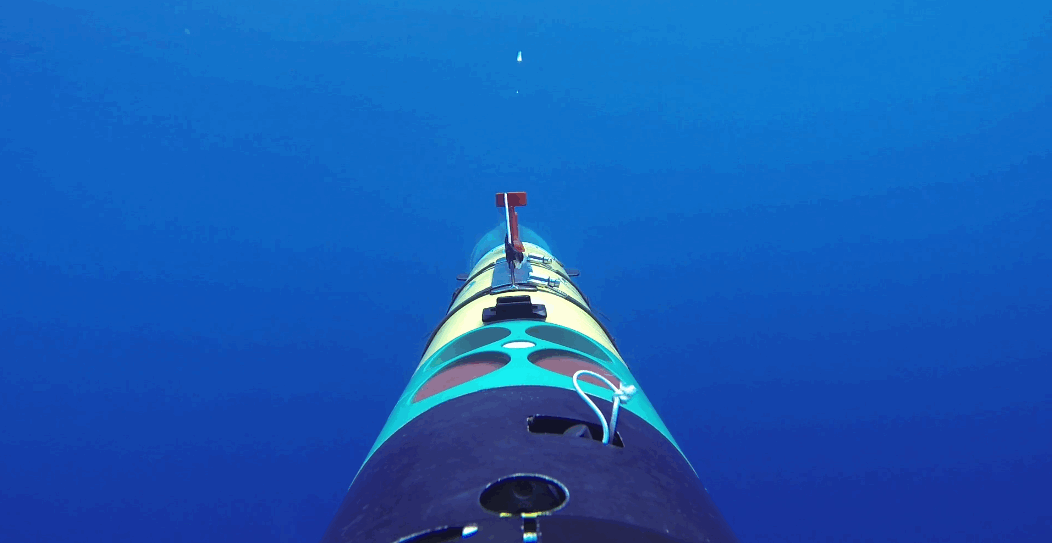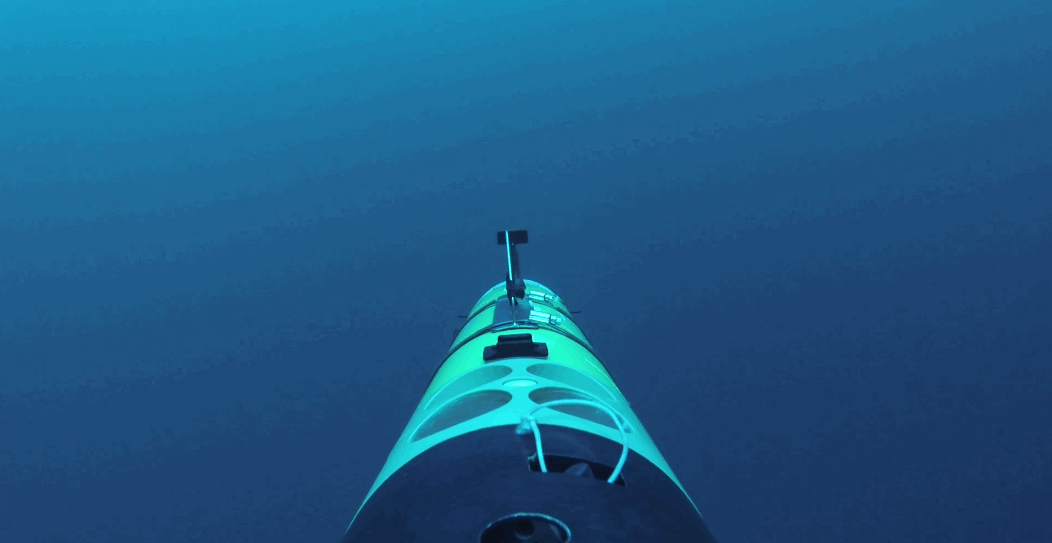Last November, scientists from Woods Hole Oceanographic Institution's Ocean Systems Laboratory took an autonomous shark-stalking robot to Guadalupe, Mexico, to track and film great white sharks. Two weeks ago, they released the footage, and it looks as though the stalker became the stalkee.
The REMUS (Remote Environmental Monitoring UnitS) — or "SharkCam," as it was christened for its Discovery Channel Shark Week debut next week — is a torpedo-shaped vehicle with six cameras implanted to capture different angles. Once scientists attach an acoustic tag to the shark, which sends out sound pings, REMUS is able to follow those pings.
This is REMUS SharkCam: This is what SharkCam typically sees when stalking a shark (the footage below is actually from Cape Cod, Massachusetts, back in 2012):
This is what SharkCam typically sees when stalking a shark (the footage below is actually from Cape Cod, Massachusetts, back in 2012):  But this is what it saw at Guadaloupe this time around:
But this is what it saw at Guadaloupe this time around: Oh yeah, and this:
Oh yeah, and this:  Turns out, the shark-stalking robot may itself have finally become prey.
Turns out, the shark-stalking robot may itself have finally become prey.
"Sharks take advantage of the clear water to lurk in the darkness below the vehicle, then swim up suddenly and bite it on the tail or mid-section," according to the video, posted to Vimeo by the Woods Hole Oceanographic Institute. "This is the same way sharks hunt seals near Guadalupe Island."
Luckily, the shark-tracking vehicle survived the attacks and recorded dozens of interactions, giving scientists their first closeups of great white shark predation, according to the video. The footage shows us "the majesty and grace of the ocean's top predator in its natural environment," the video says.
The footage and full story, filmed by Big Wave Productions, will appear on Discovery Channel's Shark Week, which starts Sunday. For more shark-tastic antics, check out the full footage below:
REMUS SharkCam: The hunter and the hunted from Woods Hole Oceanographic Inst. on Vimeo.
SEE ALSO: 10 Insane Things That Happen When A Diver Descends 400 Feet On A Single Breath